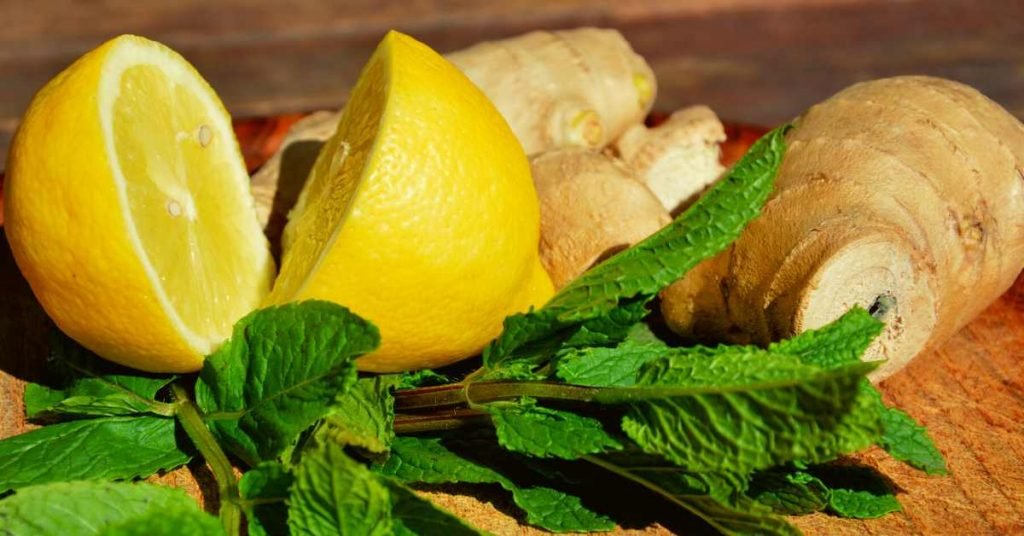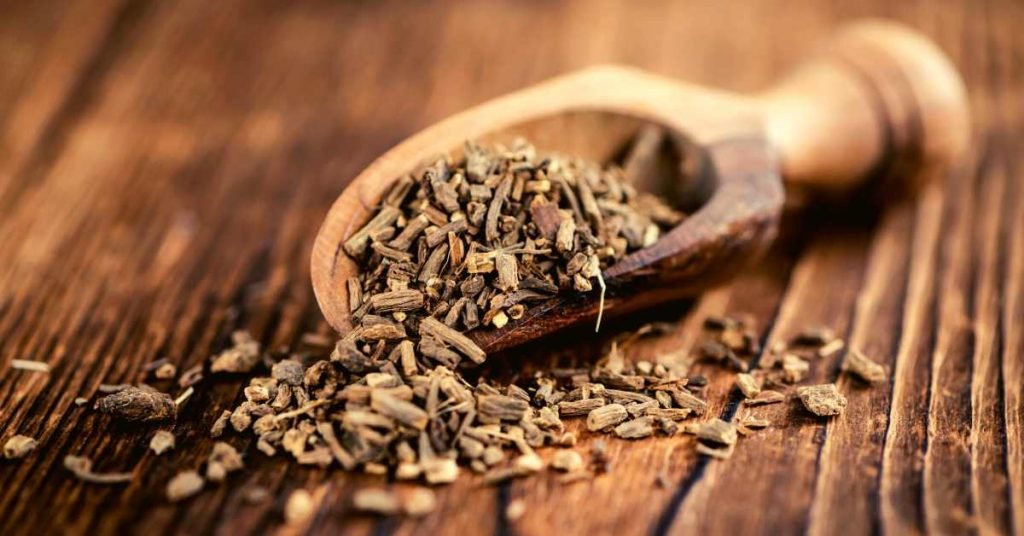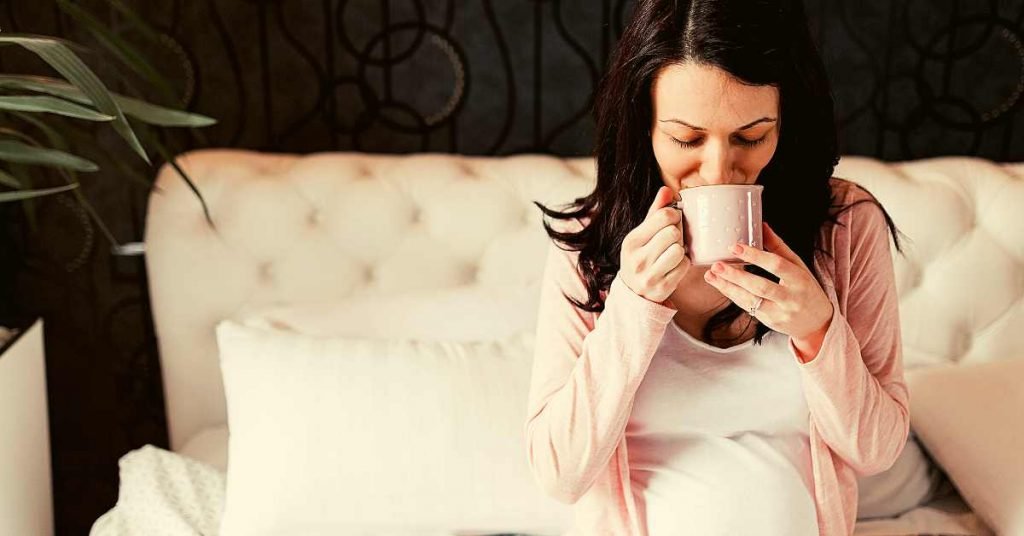The consumption of herbal teas and teas raises many doubts among pregnant women.
As a general rule, everyday herbal teas – such as chamomile or linden – are not a problem if they are taken in moderation and the doctor has given his or her approval, while colored teas or specific herbs such as mate should be avoided during pregnancy because of their high stimulant content.
Why Should We Moderate the Consumption of Herbal Teas During Pregnancy?
Drinking liquid during pregnancy and breastfeeding is very important and allows the mother and child to be perfectly hydrated.
In fact, during this period, the mother is advised to increase her water intake and it is therefore easy to think of herbal teas as a substitute for water or other beverages during pregnancy.
However, it is also true that the herbs that we take in infusion have various relaxing, stimulating, or related to absorption of nutrients properties that make them more or less recommended depending on each person.

As a general rule, the concentration of active ingredients in infusions is very low, and to perceive their side effects in a latent form their consumption should be continuous and high.
Even so, since pregnancy is a period that requires special care, it is important to consult your doctor or gynecologist about which herbal teas are allowed in pregnancy and which ones should be avoided or even completely restricted (abortive herbal teas).
Not All Herbal Teas Are Good for Pregnancy
Some herbal teas should not be taken during pregnancy and breastfeeding because they have certain properties that may be harmful to the mother or the fetus.
Here are the infusions that you should not drink while pregnant and the discomfort or even pathologies that they can promote and even cause:
- Sage, pennyroyal, boldo tea barberry, and rue. They are not recommended because they can provoke uterine contractions.
- Licorice can cause high blood pressure.
- Ginkgo Biloba can affect the fetus, specifically its heart.
- Eucalyptus promotes bleeding in pregnancy.
- Pennyroyal and boldo may cause toxicity in the fetus, according to some studies.
- Propolis and echinacea should not be consumed as a precaution, as their effects on pregnancy are not yet clearly known.
Infusions for Pregnant Women and How to Use Them
Thyme Infusion

One of the best infusions for pregnancy because of its ability to relieve nasal congestion, which makes it highly recommended when a woman has flu or sinusitis and cannot take medication.
Its consumption is, in general, positive to alleviate the discomfort and pain that usually appear in the first half of pregnancy.
On the other hand, thyme infusion during pregnancy is an excellent source of antioxidants and vitamins such as iron, manganese, fiber, and calcium.
Mint and Ginger

To avoid nausea during the first trimester of pregnancy, infusions of mint leaves are recommended, which help to dissipate the symptoms and to recover the appetite, and ginger infusions, are very useful to calm the stomach discomfort.
In the case of mint, it is recommended not to let the herb cook too much so that its properties are not altered. Something similar happens with peppermint, one of the infusions for pregnancy, recommended to naturally eliminate frequent discomforts such as headaches.
Orange Blossom, Passionflower, and Lemon Balm Infusions

The hormonal, physical, and temperature changes and the nerves of pregnancy make sleeping difficult, especially during the last trimester of pregnancy.
The infusions of orange blossom, passionflower, and lemon balm become relaxing infusions for pregnant women that also help them to fall asleep.
Raspberry Leaves Infusion
Among the infusions suitable for pregnant women, raspberry leaf tea stands out, which helps to tone the muscles of the uterus, preparing them for childbirth. As always, it is advisable to dose its consumption without abusing it, and it is recommended to avoid taking it after the 38th week.
Chamomile Infusion

It is considered beneficial because it helps to combat insomnia, anxiety, nausea, and digestive problems. But it should be consumed in moderation, since taken in excess it can alter the immune system and cause circulatory problems.
Valerian Infusion

The infusion of valerian also helps to fall asleep and combat anxiety, although some experts advise against its use during pregnancy, so if taken in moderation.
Rooibos Infusion

The consumption of rooibos during pregnancy is beneficial because it contains antioxidants that stimulate the defenses and the immune system, in addition to promoting blood circulation.
Some General Advice on Teas for Pregnant Women:
- A maximum of 2 infusions per day is recommended. Some experts even recommend taking no more than 4-5 infusions a week.
- Always choose decaffeinated infusions.
- It is recommended not to leave the sachet or herbs in hot water for too long, as this avoids the taste becoming too bitter and increases the level of caffeine or theine.
- Try not to always take the same type of infusion to avoid side effects.
- Most of the herbs that are normally used for cooking can be taken as infusions during pregnancy.
- Discard those infusions whose properties include stimulation of the uterus. For example anise, mistletoe, hibiscus, lemon verbena, licorice root, rosemary, nettle, fennel, or pennyroyal.
- Try to buy your herbal teas from reputable stores such as Hummingbird Tearoom.
- Before taking any herbal combination, check its composition and consult your doctor if you have any doubts about it.
No content on this site, regardless of date, should ever be used as a substitute for direct medical advice from your doctor or other qualified clinicians.
MEDICAL DISCLAIMER
Itsnevernotteatime.com cannot and does not contain medical/health advice. The medical/health information is provided for general and educational purposes only and is not a substitute for professional advice.




